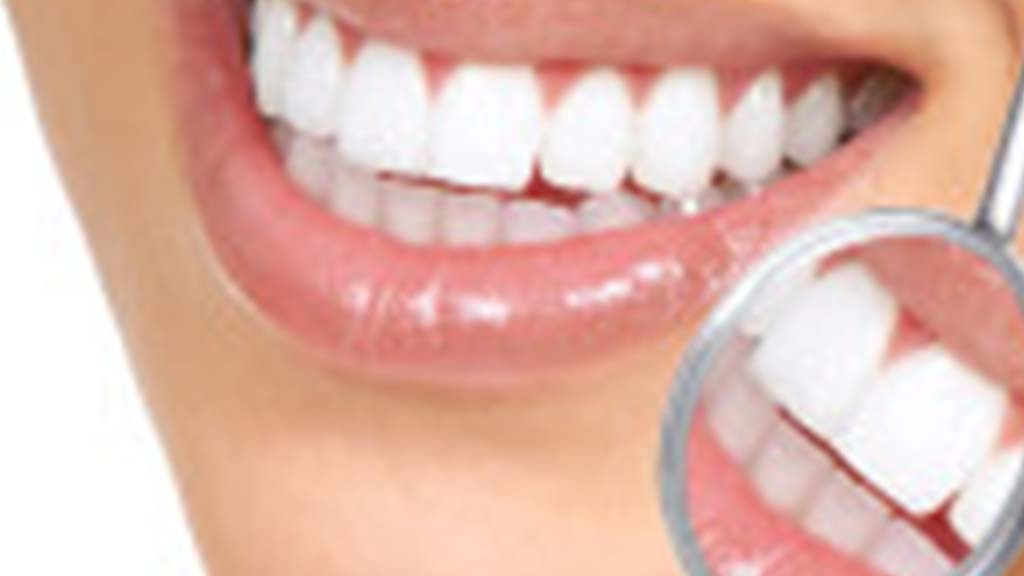By Shelley Abrams
Do you take care of your teeth? And by this I don’t just mean brushing and flossing every day. Do you get regular dental checkups? Does your dentist give you a medical exam? And vice versa. Do you get regular physical exams? Does your personal physician also check your teeth and gums?


Say what? My dentist takes care of my teeth and my doctor takes care of my body, so why should my dentist give me a medical exam, and why should my doctor look at my teeth and gums? Well, there is growing evidence that the two are inter-connected – that your overall oral health has a direct bearing on your overall physical, and perhaps in some cases, mental health. Think about it. When your teeth or gums hurt, how does the rest of you feel? Drained, pained, and overall blah? And conversely, when you have a healthy mouth, and often a big healthy smile, don’t you generally feel better?
Studies have shown that oral health affects the overall quality of life people experience, both physically and psychologically. If you have poor oral health, you limit your food choices and possibly your food intake, especially if your teeth hurt or you are missing teeth, or your gums hurt or bleed. You may choose to limit your social activities, keeping more to yourself, and your overall feeling of happiness and well-being may be on the lower end of the scale.
But that isn’t all that is affected. Studies also show that poor oral health may also be direct indicators, or perhaps the conduit for, many chronic diseases. Your mouth is full of bacteria, which if not kept in check, can travel to other parts of the body, including your organs and tissues, resulting in inflammation. And growing research seems to indicate that inflammation is a major factor in many diseases, including type 2 diabetes, heart disease, strokes, Alzheimer’s and cancer.
Some supporting food for thought (among numerous studies and resources available) include:
- People with gum (periodontal) disease seem to have an increased risk of heart disease (up to 70% more risk) and clogged arteries, which contributes to heart attacks and stroke (findings of Scottish Health Survey, published in May 2010 as well as study published New England Journal of Medicine in March 2007)
- Inflammation resulting from gum infections may contribute to increased inflammation in the brain resulting in premature death of brain cells, which may be factor in memory loss (study published in Behavioral and Brain Functions, December 2010)
- A study in the Journal of Periodontology (published in 2001) pointed out a possible link between gum disease and its effects on the lungs, resulting in an increase in respiratory system related diseases, such as pneumonia or COPD, particularly in people who already exhibit such problems or have other underlying issues, such as other illnesses that compromise the immune system (in-depth article on related studies in Dentistry Today, published August 2003)
- Gum disease can be a good indicator of diabetes (some studies have found that approximately 95% of adults with diabetes, diagnosed or undiagnosed have gum disease), and for diagnosed diabetics, gum disease makes it difficult to control blood sugar and can also lead to tooth loss (Journal of PLoS One, May 2015)
- Men with gum disease appear to have a higher chance of developing certain cancers, including pancreatic cancer (54% higher risk), kidney cancer (49% higher risk), and blood cancers (30% higher risk) (pancreatic cancer findings cited in two different studies in 2007 and 2010, sponsored by the National Cancer Institute; study sponsored by the British Dental Foundation, published in Immunity, February 2015)
- Other studies also have identified possible links between risk of premature births, infertility problems, erectile dysfunction and osteoarthritis, and gum disease or poor oral hygiene.
So, what’s the take-away here? Your mouth and your overall health and well-being are intricately and inexplicably linked. Give your dentist your full medical history and your doctor your dental history because together they can help you stay healthier, and at a minimum, catch potential problems before they can get the better of you!
For a good read and more information, read the U.S. Surgeon General Report on Oral Health, published in 2000: http://www.nidcr.nih.gov/DataStatistics/SurgeonGeneral/Report/ExecutiveSummary.htm

